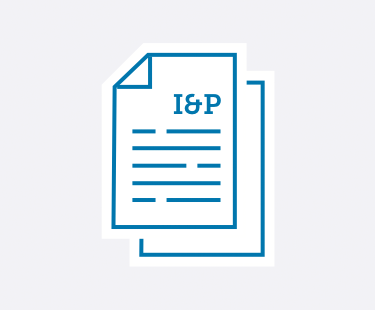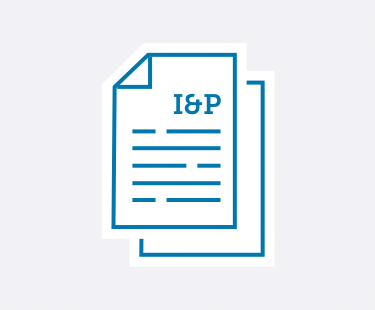

Learn practical strategies to handle emerging trends and leadership challenges in private schools.
No matter if you’re a School Head, Admission Director, Development Director, Board member, or any other private school administrator—Ideas & Perspectives®, ISM’s premier private school publication, has strategic solutions for the pervasive problems you face.
- Tuition not keeping pace with your expenses? In I&P, explore how to use strategic financial planning to create your budget and appropriately adjust your tuition.
- Enrollment dropping off? Discover how to implement the right admission and enrollment management strategies that engage your community—and fill your classrooms.
- Trouble retaining teachers? Learn how you can best support your teachers using ISM’s Comprehensive Faculty Development framework. Your faculty members will become more enthusiastic about their roles—which ultimately improves student outcomes.
- Fundraising campaigns not as successful as you’d hoped? Implement ISM’s practical advice and guidance to build a thriving annual fund, construct an effective capital campaign, and secure major donors—no matter your community size or location.
- Not sure how to provide professional development—for you and your staff? Learn ways to develop and fund a successful professional development strategy. You can improve teacher-centered satisfaction and growth, which in turn strengthens student-centered learning.
- Problematic schedule? You can master the challenges of scheduling with the help of ISM’s practical advice, based on our experience with hundreds of schools and our time-tested theories.
- And so much more.
I&P has shared targeted research, up-to-date insight, and sound theory with school leaders since 1975. More than 8,500 private school decision-makers find the answers to their schools’ administrative and governance matters in our advisory letter. We give you the strategic answers you need.
As an ISM Silver or Gold member, you not only receive issues online and in print 10 times a year, but you have access to 900+ articles in our web archive. Need help? It’s at your fingertips! Learn more and sign up for ISM's membership here.
Search
See the articles from our latest issue of Ideas & Perspectives.
Solutions for Your Wandering Mission Statement
Volume 38 No. 6 // April 18, 2013
Before going on-site at a client school, ISM Consultants examine numerous documents to gain a thorough grounding in each institution’s approaches to governance, operations, and student programs. The school’s mission statement is a central component in this review. Once on-site, observations, conversations, survey interpretation, and interviews at times reveal discrepancies between the school’s published mission statement and its de facto statement. The de facto mission (or missions) comprise sets of principles or practices that have come to be observed at some levels or in some departments of the institution and that do not conform to the published statement. In some cases, ISM has found that there appears to be a different de facto mission for each academic division, for each academic department, and/or for each component of the cocurriculum. The published mission statement appears thereby to “wander” its way through the school, applied with one interpretation here, with another interpretation there, and with no attention to its very existence somewhere else.
1. Already a member? Click here to login.
2. Not a member? Click here to become a member.
3. Not sure? We'll help you figure it out.
Developing a Gift Acceptance Policy Manual
Volume 38 No. 6 // April 18, 2013
A central component of providing “direct and consistent donor cultivation” is the school’s ability to assist donors in making informed decisions about their giving, while protecting the school from awkward, inappropriate, or perhaps risky gift transactions. Consider the following two scenarios. A donor wants to make a gift to the school using securities that she has owned for many years. She requests the school hold the stock for a month before selling it. A patron of a nonsectarian school will make a seven-figure gift if the school agrees to add a religious component to its mission.
1. Already a member? Click here to login.
2. Not a member? Click here to become a member.
3. Not sure? We'll help you figure it out.
Financial Questions the Head Candidate Should Ask During the Interviews
Volume 38 No. 5 // April 9, 2013
As a candidate for a private-independent school headship, you must learn, in a short amount of time, a great deal about the school you are considering. If, like many candidates, you have more experience in programmatic areas (e.g., curricular and cocurricular programs, student issues, parent communication, faculty support) than in operations (e.g., facilities, finances, human resources, risk management), acquiring an understanding of a school’s financial condition could present a challenge. Look to the on-site interview(s) as the best time to gather the information you need about the budget and other monetary matters. Make sure you talk to the Chair of the Finance Committee and Business Manager/CFO separately. These people (with the current School Head) will provide the most useful detail in answering your questions.
1. Already a member? Click here to login.
2. Not a member? Click here to become a member.
3. Not sure? We'll help you figure it out.
Community Service and Service Learning: Designing a Successful Program
Volume 38 No. 5 // April 9, 2013
Many private-independent schools encourage students of all ages to become involved in community service—an ongoing, schoolwide program of service to others. These schools may also specify that students complete a prescribed number of hours as a graduation requirement. These service programs are designed to broaden students’ sense of social awareness by exposing them to the “real world” and to instill in these young people a lifelong commitment to caring for and about others. In addition, a school should offer service learning—those components of the school’s curriculum that support and complement the community service efforts.
1. Already a member? Click here to login.
2. Not a member? Click here to become a member.
3. Not sure? We'll help you figure it out.
Super Board/Board Relationships
Volume 38 No. 5 // April 9, 2013
Two Boards often govern schools with a religious affiliation. Typically, one of these is charged with direct governance of the school itself. The other is the governing body for the religious entity, and thus indirectly governs the school as well. ISM’s generic term for these “other” governing entities is “Super Board.”
1. Already a member? Click here to login.
2. Not a member? Click here to become a member.
3. Not sure? We'll help you figure it out.
Waiting Pools: Base Enrollment on Class Needs and Mission
Volume 38 No. 4 // March 13, 2013
You don’t want to enroll a child in June who is a real academic risk or who doesn’t fit your school’s mission. What if your best candidates apply in August? And what if the first 10 students who meet minimum qualifications for a given grade are all girls and you operate a coed school? Leave yourself room to select the most appropriate candidates from among all who eventually apply.
1. Already a member? Click here to login.
2. Not a member? Click here to become a member.
3. Not sure? We'll help you figure it out.
Your School’s Summer Program and Risk Management
Volume 38 No. 4 // March 13, 2013
As Summer Program Director, you’ve spent time since last summer’s program to reconsider the design and curriculum for this summer’s sessions. You may not, however, have looked at risk management specifically from the perspective of your program. Or perhaps you noticed some safety issues last year that must be addressed. The safety and care of your students is a priority—and is also essential in our litigious society.
1. Already a member? Click here to login.
2. Not a member? Click here to become a member.
3. Not sure? We'll help you figure it out.
Research Report: Faculty Culture Profile II and Student Culture Profile II, Fall 2012 Data
Volume 38 No. 3 // February 20, 2013
ISM published its Student Experience Study (SES) outcomes in January 2012, and published related articles in Ideas & Perspectives throughout the spring. Among the features in the report were a revised Faculty Culture Profile—ISM’s long-standing measure of the quality of a school’s faculty culture—and a revised Student Culture Profile, along with the study’s statistical findings and an instrument for use as part of any school’s approach to faculty evaluation, the Characteristics of Professional Excellence II.
1. Already a member? Click here to login.
2. Not a member? Click here to become a member.
3. Not sure? We'll help you figure it out.
2012 Re-enrollment Survey Results—Full Steam Ahead
Volume 38 No. 3 // February 20, 2013
ISM constantly monitors enrollment trends in private-independent schools. Over the past four years, there has been significant angst that economic realities could cause enrollment declines. To monitor this, ISM, working with Hanover Research, conducted the largest parent survey in our history. That survey, and the follow-up surveys since 2009, have all indicated no change in parental intention to re-enroll their children due to economic constraints. To further understand tuition sensitivities, ISM worked with the consulting firm Measuring Success and learned that tuitions over the period of 2003 to 2009 had not reached the “tipping point,” and that perceived value—not price or the economy—was the key difference in determining whether parents would re-enroll.1
1. Already a member? Click here to login.
2. Not a member? Click here to become a member.
3. Not sure? We'll help you figure it out.
Maintain Personnel Records Diligently to Protect Your School
Volume 38 No. 3 // February 20, 2013
While many schools expend significant effort to manage student records appropriately, they often pay less attention to handling employee records properly. In an increasingly litigious and regulated operating environment, schools must attend to employee records in a consistent and prudent fashion. This article provides record-keeping recommendations for each employee-related process, and describes how to maintain various files and records for the protection of the school and employees.
1. Already a member? Click here to login.
2. Not a member? Click here to become a member.
3. Not sure? We'll help you figure it out.


